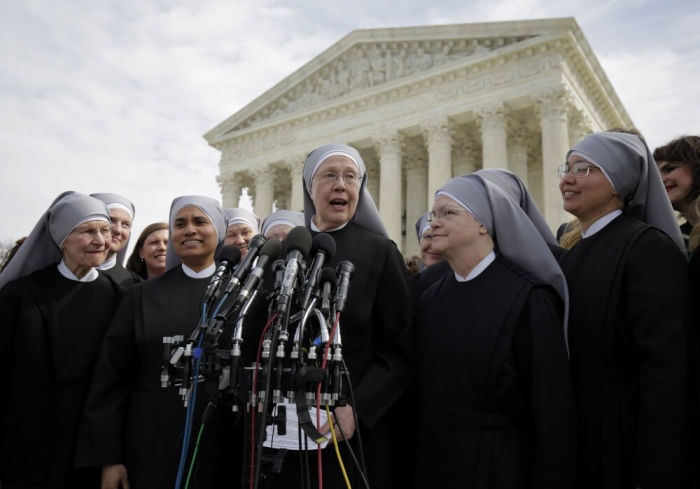Federal judge blocks Trump's religious exemption to birth control mandate

The Trump administration's expansion of the religious exemption in Obama-era birth control mandate in health insurance plans will not be implemented Monday in 13 states and the District of Columbia as was planned, a federal judge ruled Sunday.
In his decision, Judge Haywood Gilliam of the United States District Court for the Northern District of California, blocked via an injunction the implementation of the new Trump rules on contraception coverage, which allowed employers to opt out of providing birth control as part of their health insurance plans if doing so violated their religious or moral convictions, according to the Washington Examiner.
The injunction against the new rules came about as a result of a lawsuit from 13 Democrat attorneys general and only extends to the states that filed the suit, although the plaintiffs did ask that it apply nationwide.
The Trump administration criticized the ruling.
“No American should be forced to violate his or her own conscience in order to abide by the laws and regulations governing our health care system,” Caitlin Oakley, a spokeswoman for the Department of Health and Human Services said in a statement Sunday.
“The final rules affirm the Trump Administration’s commitment to upholding the freedoms afforded all Americans under our Constitution.”
Opponents of the Trump rules celebrated the ruling, calling it a victory for women's rights.
“The law couldn’t be more clear — employers have no business interfering in women’s healthcare decisions,” said Xavier Becerra, attorney general of California, in a statement Sunday evening.
“Today’s court ruling stops another attempt by the Trump Administration to trample on women’s access to basic reproductive care.”
Except for the religious exemptions, under the Affordable Care Act employers must offer health insurance plans with several birth control options, including abortifacient varieties, at no further cost to patients.
Previously, under the Obama rules, only houses of worship were exempt from having to provide contraceptives, but not businesses or nonprofit organizations, even religious nonprofits. Those who refused to comply faced fines.
Yet the Trump administration wrote its own rules that expanded the religious exemptions in Oct., 2017.
The contentious issue has been highlighted in recent years as a result of the Obama administration's actions against the Catholic group the Little Sisters of the Poor, a religious order that cares for the impoverished elderly, and craft retail giant Hobby Lobby's victory at the Supreme Court in 2014. Both groups, one a nonprofit organization and the other a business, argued that the government was forcing them to violate their conscience and religious freedom as guaranteed by the First Amendment.
In Hobby Lobby's case, Burwell v. Hobby Lobby, the high court ultimately ruled in a 5-4 decision that the government could not force a private company to violate their conscience and that the protections of the Religious Freedom Restoration Act (RFRA) extend to closely held for-profit corporations, exempting them from the contraceptive mandate in the ACA.
The case of the Little Sisters of the Poor was consolidated along with six other related cases under Zubik v. Burwell. In 2016, the U.S. Supreme Court vacated the Court of Appeals ruling and returned those cases back to their respective courts of appeals for reconsideration.




























